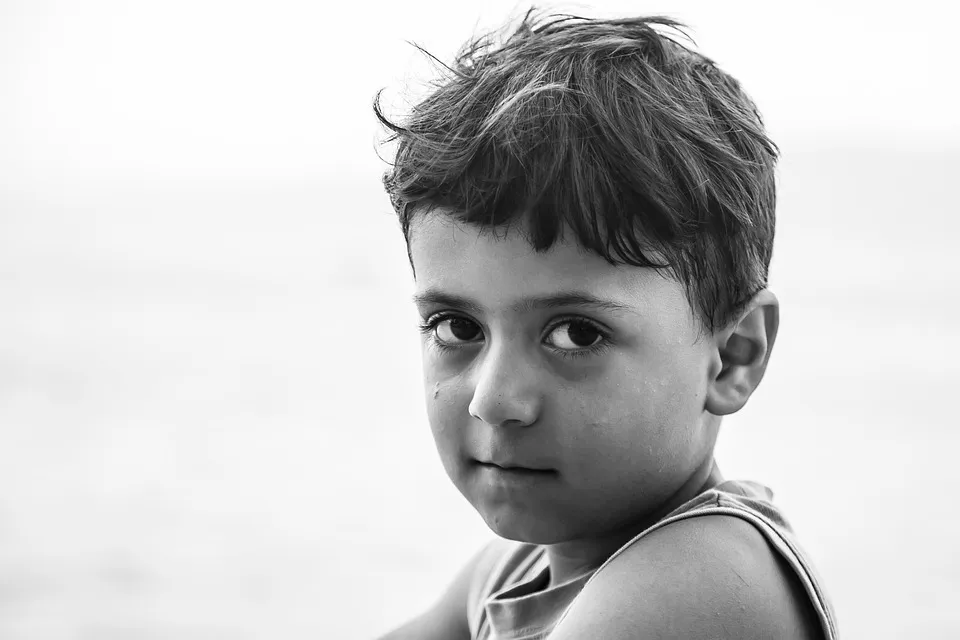 LINK
LINK«Somos fácilmente engañados por aquellos a quienes amamos.»
«We are easily fooled by those we love.»
— Molière

ESPAÑOL
Damián
¿Quién puede comprender los misterios de lo desconocido entrados por una puerta? ¿Quién puede destilar con argumentaciones los sucesos más extraños del tiempo? ¿Quién puede revelar con claridad el lado penumbroso y extraño de la intelectualidad? Quizás Damián sea el cúmulo corpóreo de todas estas preguntas y de muchas otras más que no he podido establecer, porque son tantas y el mundo no está preparado aún para tanta confusión.
El día en que Damián nació, una radiación disparada por diferentes horizontes hizo que las luces de la ciudad parpadearan descontroladas. Su madre, Érica, nunca dio detalles sobre su padre, la última vez que lo vio fue el día en que concibieron a su hijo, pero ella nunca le tuvo rencor, ni extrañeza, solo fue una figura efímera necesaria para conseguir su objetivo.
Lo llamó Damián, como al hombre que le ayudó a engendrarlo, y sin permanecer ningún otro recuerdo memorable le pareció que ese detalle era el más justo. Aunque las ironías de los anhelos son bastante inciertas, Érica se sentía tranquila y conforme con la vida que llevaba, y más aún, de que su hijo jamás preguntara sobre su origen.
Con tan solo nueve años, Damián demostró una intelectualidad y erudición fantásticas, supremamente anormales para un niño de su edad. Un Platón reencarnado en las cumbres de la modernidad. Un Aristóteles ensimismado entre los ensayos y teorías del espacio y el tiempo. Un Tomás de Aquino incursionado entre el empirismo y descubrimiento de las ciencias. Un teórico Foucaultiano y Hegeliano incisivo en comprender la funcionalidad humana y su desenvolvimiento. Y de éstos y muchos más, Damián asimilaba cada característica de los libros y de los autores que leía, dejando sus facciones arropadas por su comprensión.
A la edad de siete años, Damián había leído más libros y ensayos que San Agustín en los últimos vestigios de su decrepitud. No solo sentía una filiación por las ciencias y las filosofías tanto arcaicas como contemporáneas, sino también, por las bellas artes, especialmente por la literatura; influencia que Damián tomaría para confeccionar su concepción de belleza por lo humano y por todo el entorno que le rodeaba.
Al cumplir los ocho años, Damián se convirtió en una de las figuras más conocidas del mundo, ya había escrito teorías y ensayos que con celeridad, abarcaron todos los espacios científicos de los grandes teóricos y pensadores de la actualidad. Una locura desatada. Un tiempo que paulatinamente era dominado por una inteligencia que no poseía concepción sobre el bien o el mal.
A los nueve años Damián fue reconocido por los líderes del mundo como una de las mentes más brillantes de nuestro tiempo. Manejaba siete idiomas a la perfección y departía un lenguaje abierto y conciso inusual en un niño de esa edad. Se aventuró entre grandes campañas con importantes personalidades del poder, no solo en el ámbito político, sino también en lo económico y lo religioso. Éstos le otorgaron las bases para obtener la cima y Damián solo tuvo que extender la mano para tomarla.
Las palabras del muchacho eran como opio hasta para las mentes más perspicaces. Eran hechiceras, persuasivas y seductoras. Un sofismo dispuesto sin ninguna primicia preparada, Damián solo tenía que abrir sus labios y las masas lo escuchaban como suricatos en el desierto. La única persona que no caía en los embrujos del niño, era su propia madre, quien ni siquiera se anonadaba con las habilidades extraordinarias de su hijo.
Esto se debía, quizás, a que Érica previamente tenía conocimiento del poder que actualmente el niño ostenta. Ella solo lo observaba con una sonrisa en el rostro, enorgullecida, tal vez, por su pequeño prodigio. Pero las capacidades intelectuales de Damián, habían sobrepasado los límites de su concepción, y esto llegó a manos de los precursores de su origen, quienes veían al pequeño como una maravilla de la hibridez.
Dicho esto, ahora las consecuencias ya no serían favorables tanto para su madre ni para los que planificaron su nacimiento. En uno de sus discursos magnánimos, Damián comenzaba a sentirse débil y exponía una imagen deteriorada. Y en medio de una horda de personas seducidas por su demagogia, se desvaneció en un desmayo del que casi no despertó.
Los mejores médicos del mundo lo atendieron y concluyeron que no había esperanza para él, puesto que había sido víctima de una leve apoplejía. Por deseos de su angustiada madre, Damián fue trasladado a su hogar natal junto con ella, para pasar definitivamente sus últimos días. Érica nunca se separó de él, y en su última noche con su hijo, decidió recitarle uno de sus relatos preferidos: El Gran Rubí de Nathaniel Hawthorne, y lo leyó con la serenidad de una madre con esperanzas.
De repente, en medio del frío que los acompañaba, las luces de la habitación y de la calle se extinguieron por completo; un apagón general donde solo se podía percibir la poca claridad que otorgaba la luna. Érica se dispuso a encender una vela que se encontraba en el cajón de uno de los escritorios de la habitación. Súbitamente, escuchó un ruido que parecía provenir del lado de la ventana, al revelar con la luz de la vela, notó espantada que ésta estaba abierta.
Érica estaba alarmada y más aún, al escuchar unos pasos que parecían dirigirse a la cama de Damián. Alumbró para aquella dirección, y observó que Damián ya no se encontraba allí. Luego inadvertidamente escuchó otro ruido en la ventana, y al iluminar rápidamente hacia ella, vio una figura oscura con ojos rojos destellantes que la observaban, parada en el marco de la ventana sosteniendo al niño en sus brazos.
Érica no pudo distinguir la apariencia física del intruso, pero una corazonada, tan punzante como una lanza de guerra, le reveló la idea de la identidad de su extraño visitante.
—¿Damián? —Preguntó ella asombrada, pero no lo dijo refiriéndose a su hijo sino al misterioso hombre, quien para ella, ¡ese era el padre!
Al escuchar esa única palabra, la extraña figura se abalanzó por el marco de la ventana y se perdió en la penumbra, y después de unos segundos, la electricidad volvió. Érica se quedó sentada a un lado de la cama, no hubo lágrimas que se deslizaran por sus mejillas ni alaridos expedidos por su pecho. Estaba inerte y envuelta por la frialdad, como si comprendiera todo lo que había sucedido. Miró a la ventana fijamente y parafraseó una especie de oración de despedida:
—Te quiero hijo, sé bueno y no pierdas de vista ninguna de las maravillas que estás apunto de contemplar.
FIN
ENGLISH
Damien
Who can understand the mysteries of the unknown entered through a door? Who can distil with arguments the strangest events of time? Who can reveal with clarity the penumbra and strange side of intellectuality? Perhaps Damien is the corporeal accumulation of all these questions and of many others that I have not been able to establish, because there are so many of them and the world is not yet prepared for so much confusion.
The day Damien was born, a radiation shot through different horizons made the lights of the city flicker out of control. His mother, Erica, never gave any details about his father, the last time she saw him was the day her son was conceived, but she never held any grudge against him, nor was he a stranger, he was just an ephemeral figure necessary to achieve his goal.
She called him Damien, like the man who helped her to conceive him, and without any other memorable memory remaining, she found that detail to be the most just. Although the ironies of the longings are quite uncertain, Erica felt calm and content with the life she was leading, and even more so, that her son never asked about his origin.
At only nine years old, Damien demonstrated a fantastic intellect and erudition, supremely abnormal for a child of his age. A Plato reincarnated in the heights of modernity. An Aristotle engrossed in the trials and theories of space and time. A Thomas Aquinas foraying among empiricism and discovery of sciences. A Foucaultian and Hegelian theorist, incisive in understanding human functionality and its development. And of these and many more, Damien assimilated every characteristic of the books and authors he read, leaving his features covered by his understanding.
At the age of seven, Damien had read more books and essays than Saint Augustine in the last vestiges of his decrepitude. Not only did he feel an affiliation to the sciences and philosophies, both archaic and contemporary, but also to the fine arts, especially literature; an influence Damien would take to make his conception of beauty by the human and the whole environment around him.
When he was eight years old, Damien became one of the most well known figures in the world, he had already written theories and essays that quickly covered all the scientific spaces of the great theorists and thinkers of today. A madness unleashed. A time that was gradually dominated by an intelligence that had no conception about good or evil.
At the age of nine, Damien was recognized by the leaders of the world as one of the most brilliant minds of our time. He spoke seven languages perfectly and had an open and concise language unusual for a child of that age. He ventured into great campaigns with important personalities of power, not only in the political arena, but also in the economic and religious ones. These gave him the basis to obtain the top and Damien only had to extend his hand to take it.
The boy's words were like opium to even the most discerning minds. They were sorcerers, persuasive and seductive. A willing sophism with no prepared scoop, Damien only had to open his lips and the masses listened to him like meerkats in the desert. The only person who did not fall under the child's spell was his own mother, who was not even overwhelmed by the extraordinary abilities of her son.
This was perhaps because Erica had previously been aware of the power that the child now wielded. She only looked at him with a smile on her face, perhaps proud of her little prodigy. But Damien's intellectual capacities had surpassed the limits of his conception, and this reached the hands of the precursors of his origin, who saw the little one as a marvel of hybridity.
Having said this, now the consequences would not be so favorable for his mother or for those who planned his birth. In one of his magnanimous speeches, Damien began to feel weak and exposed a deteriorated image. And in the midst of a horde of people seduced by his demagogy, he vanished into a faint from which he hardly woke up.
The best doctors in the world attended to him and concluded that there was no hope for him, since he had been the victim of a mild stroke. At the wish of his distressed mother, Damien was moved to his home with her, to spend his last days definitively. Erica never left his side, and on her last night with her son, she decided to recite one of her favorite stories: The Great Ruby by Nathaniel Hawthorne, and read it with the serenity of a hopeful mother.
Suddenly, in the midst of the cold that accompanied them, the lights in the room and in the street were completely extinguished; a general blackout where only the little clarity granted by the moon could be perceived. Erica set out to light a candle that was in the drawer of one of the room's desks. Suddenly, she heard a noise that seemed to come from the side of the window, and when the light of the candle revealed it, she noticed with horror that the window was open.
Erica was alarmed and even more so, when she heard some footsteps that seemed to be heading towards Damien's bed. She lit up in that direction and noticed that Damien was no longer there. Then she inadvertently heard another noise at the window, and as she quickly lit up towards it, she saw a dark figure with flashing red eyes watching her, standing on the window frame holding the child in her arms.
Erica could not distinguish the physical appearance of the intruder, but a hunch, as sharp as a war spear, revealed to her the idea of the identity of her strange visitor.
—Damien? —she asked in amazement, but she did not say it in reference to her son, but to the mysterious man, who to her, was the father!
Hearing that one word, the strange figure pounced on the window frame and was lost in the gloom, and after a few seconds, the electricity returned. Erica sat up on the side of the bed, no tears streaming down her cheeks or screams from her chest. She was inert and enveloped by coldness, as if she understood everything that had happened. She stared at the window and paraphrased a kind of farewell prayer:
—I love you, son, be good and don't lose sight of any of the wonders you are about to behold.
THE END
Escrito por @universoperdido. Martes, 8 de septiembre del 2020
Written by @universoperdido. Tuesday, September 8, 2020

Other publications of my authorship | Otras publicaciones de mi autoría
| [ENG-ESP] The chest (Micro-Fiction) |  |
|---|---|
| Resentimiento / Nuevo concurso de microrrelatos @monster-retos |  |
| Theinkwell writing prize / The sunset of the immortals |  |


